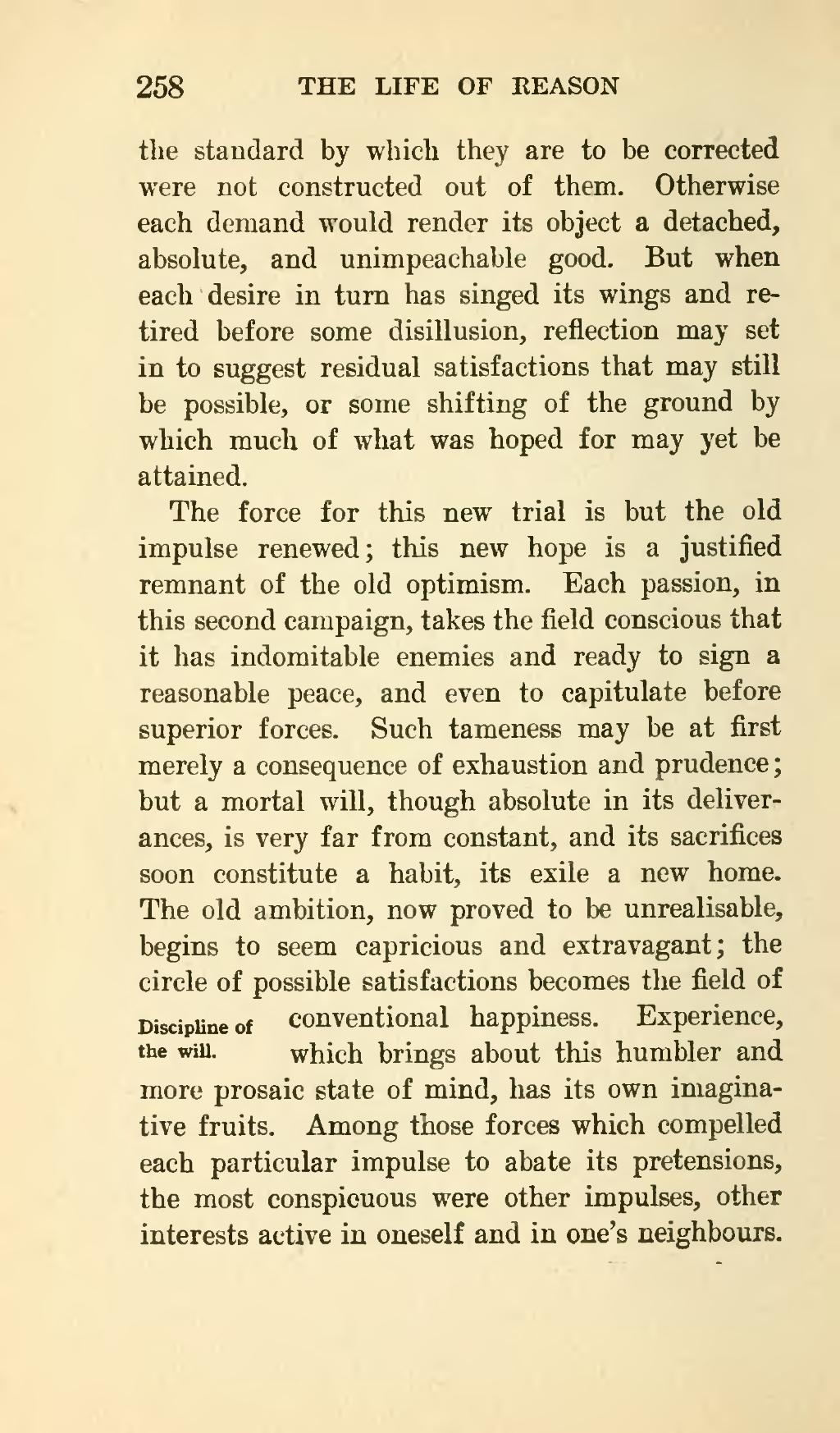the standard by which they are to be corrected were not constructed out of them. Otherwise each demand would render its object a detached, absolute, and unimpeachable good. But when each desire in turn has singed its wings and retired before some disillusion, reflection may set in to suggest residual satisfactions that may still be possible, or some shifting of the ground by which much of what was hoped for may yet be attained.
The force for this new trial is but the old impulse renewed; this new hope is a justified remnant of the old optimism. Each passion, in this second campaign, takes the field conscious that it has indomitable enemies and ready to sign a reasonable peace, and even to capitulate before superior forces. Such tameness may be at first merely a consequence of exhaustion and prudence; but a mortal will, though absolute in its deliverances, is very far from constant, and its sacrifices soon constitute a habit, its exile a new home. The old ambition, now proved to be unrealisable, begins to seem capricious and extravagant; the circle of possible satisfactions becomes the field of conventional happiness. Experience, which brings about this humbler and more prosaic state of mind, has its own imaginative fruits. Among those forces which compelled each particular impulse to abate its pretensions, the most conspicuous were other impulses, other interests active in oneself and in one’s neighbours.
